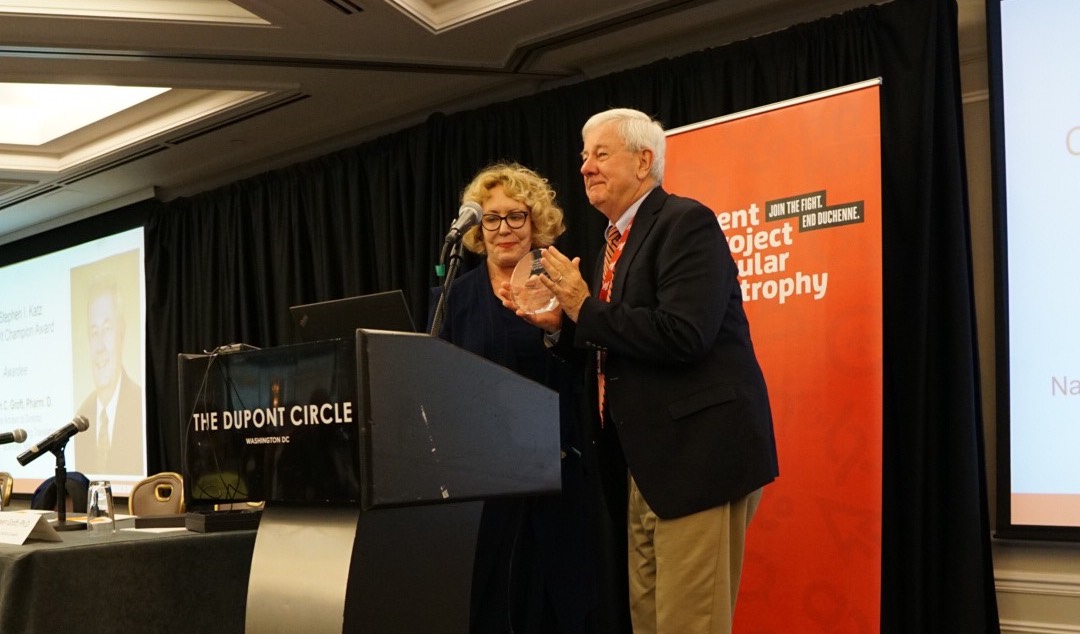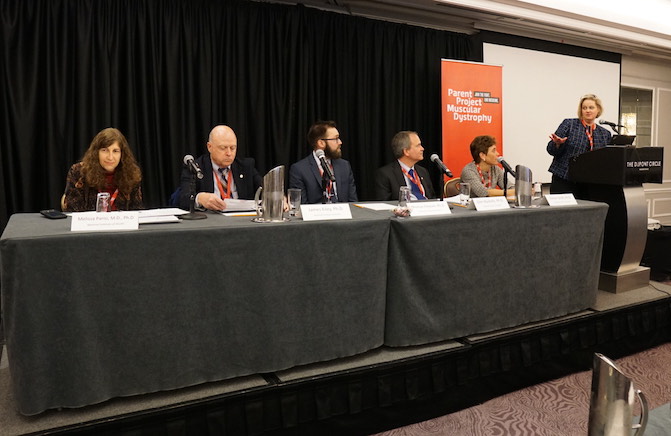
With PPMD’s 2020 Advocacy Conference well underway, attendees participated in a special breakfast session earlier today reflecting on the progress our community has made since the first National Institutes of Health (NIH) workshop on Duchenne Muscular Dystrophy was held 20 years ago, at PPMD’s request.
Since that first workshop in 2000, the Duchenne community has worked with the agencies to advance scientific research and drug development in the fight against Duchenne.
Agency leaders participating in today’s discussion included:
- Stephen Groft, Ph.D., Office of Rare Diseases Research, National Center for Advancing Translational Sciences (NCATS), NIH
- Glen Nuckolls, Ph.D., Program Director, National Institute of Neurological Disorders and Stroke (NINDS), NIH, and leader of the Muscular Dystrophy Coordinating Committee (MDCC)
- Thomas Cheever, Ph.D., Program Director, National Institute of Arthritis and Musculoskeletal and Skin Diseases (NIAMS), NIH
- James Kiley, Ph.D., Director, Division of Lung Diseases, National Heart, Lung, and Blood Institute (NHLBI), NIH
- Melissa Parisi, M.D., Ph.D., Chief, Intellectual and Developmental Disabilities Branch, Eunice Kennedy Shriver National Institute of Child Health and Human Development (NICHD), NIH
- Marielena McGuire, Ph.D., Program Manager, Congressionally Directed Medical Research Programs (CDMRP), Department of Defense

We also took a moment to remember and recognize the contributions of Dr. Stephen I. Katz, M.D., Ph.D., the former Director of the National Institute of Arthritis and Musculoskeletal and Skin Diseases (NIAMS). In memory of Dr. Katz, PPMD awarded Dr. Stephen Groft, Senior Advisor to Director, National Center for Advancing Translational Sciences, NIH, with the first ever Stephen I. Katz Change It Champion Award, for his years of service to patients with rare disorders.
We have made significant progress and have seen measurable results – including three FDA-approved drugs to slow disease progression and more than 30 potential new therapies in the pipeline. However, there is still much work that needs to be done to advance both scientific research and clinical practice around the disease in order to end Duchenne. Thank you to all of the families that have joined us in Washington, D.C. this week! We appreciate your time and energy.
Advocate from Home
If you are unable to attend the Conference in person, you can advocate from home. Click here to sign up for PPMD’s Advocacy Alerts and ensure that your voice, your story is included in PPMD’s messaging to lawmakers.



 by: Parent Project Muscular Dystrophy
by: Parent Project Muscular Dystrophy

